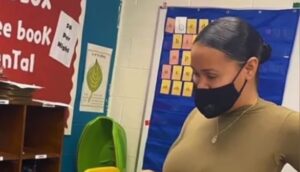8 days after my wife, 42, died, I got a notification of a charge from our joint bank account.
It was from a car rental.
Like crazy, I rushed there and showed her photo to the clerk.
He turned pale and said, “This woman was here.
She was with a man who called her ‘Birdie’.”
I stood there frozen. My wife, Alina, had died in a car crash. Closed casket. Burned beyond recognition, they said. But I had identified the body by her bracelet and the gold locket she always wore. The hospital, the coroner, the police—everyone had assured me it was her.
So what was this?
“Are you sure?” I asked the clerk again, my voice dry.
He nodded. “Positive. She had that dimple when she smiled, and she laughed like she was in a good place.”
A good place?
I left there in a daze. Alina had struggled with depression. She’d been tired—of the routine, of motherhood, of pretending everything was fine. But I never imagined she’d fake her death. That didn’t make any sense. She loved our son, Kadeem. She adored him. Why would she leave him?
But that name—Birdie—rattled around in my head like a pinball.
The next day, I went to the police with what I’d found. They told me it was probably a coincidence. A woman who looked like my wife, similar features—people project grief. I almost believed them.
Almost.
Until I remembered something that had always sat wrong with me.
Four days before the crash, she’d asked me, “If someone needed to disappear… could you forgive them if it was for their survival?”
I thought she was being philosophical. I thought she was talking about a movie we’d watched.
I thought wrong.
I started digging. I checked our home cameras, the ones we’d never used much. One had saved some footage, despite the system being half-broken. The night before her “accident,” Alina left the house at 1:47 a.m. She wasn’t wearing her usual robe. She had on jeans and sneakers.
There was a duffel bag slung across her shoulder.
The next shot, two minutes later, showed a man waiting at the end of our street. He opened the passenger door. She got in.
She never came back.
I was shaking watching it. Part of me was sick with betrayal, but part of me was relieved—because that meant she might not be dead. That maybe, just maybe, I could find her and get the truth.
I followed the car rental trail. That specific rental had been returned in Alabama, nearly 600 miles away. No security footage. No name used—just prepaid and dropped off. But a helpful agent remembered something odd: a woman asking about bus routes, holding a map with “Willow Creek” circled.
It wasn’t much, but it was something.
Willow Creek was a town so small it barely existed on Google Maps. I drove there that weekend. Told Kadeem I had a work trip. He didn’t ask many questions—he’d been quieter lately.
Grief messes with kids differently.
I found a cafe near the bus station. It was run-down but friendly. I showed Alina’s photo to the barista. She blinked and said, “Oh. Birdie.”
That name again.
“She comes in every Thursday morning. Gets the same thing—black coffee and banana bread.”
“Does she come alone?”
The girl shrugged. “Sometimes with an older guy. Maybe her dad?”
Her dad?
Alina’s father died when she was fifteen. Unless…
Unless that was the lie.
I waited three days.
On Thursday morning, I saw her.
She walked in like nothing had ever happened. Hair shorter. A little thinner. But it was her. My wife.
I didn’t walk up. I just watched. She sat alone, reading. Calm.
I couldn’t breathe.
Eventually, I stood and went over.
“Alina.”
She froze.
Slowly, she looked up. Her eyes welled instantly. She opened her mouth, but no sound came out.
“You died,” I whispered.
She swallowed. “No. I escaped.”
We talked for four hours. She told me everything.
Turns out, years ago—before we even met—she was caught in a dangerous relationship with a man who trafficked women. She’d escaped, changed her name, built a new life. But a few months ago, she saw someone from her past. Someone who recognized her.
That’s why she’d been nervous, paranoid, distant.
She didn’t tell me because she didn’t want to drag me and Kadeem into it. She thought if she “died,” they’d stop looking. That she could finally be free.
She said the man who helped her—the one who called her Birdie—was a retired private investigator who helped women vanish from those networks.
“I wanted to come back every day. But I couldn’t risk it,” she said.
“And Kadeem?” I asked.
Her face broke. “I think about him every second.”
We sat in silence.
Then I said, “You can’t stay gone forever.”
In the weeks that followed, I didn’t push her. But I did what I could. I got her in touch with a lawyer who understood witness protection and relocation laws. She started using her real name again—her real real name, before all the aliases.
Three months later, she came home.
She met Kadeem in the park. From a distance at first. Then one day, he ran into her arms like he knew, like he always knew.
We’re not fully back together. That kind of break doesn’t heal overnight. But we talk. We co-parent. We rebuild, one honest step at a time.
Sometimes, people disappear not to hurt you… but to save themselves.
If someone you love is acting off, ask. Listen. Dig deeper.
You never know what kind of pain they’re carrying in silence.
❤️
Share this if it moved you, or if you believe second chances deserve a voice.




